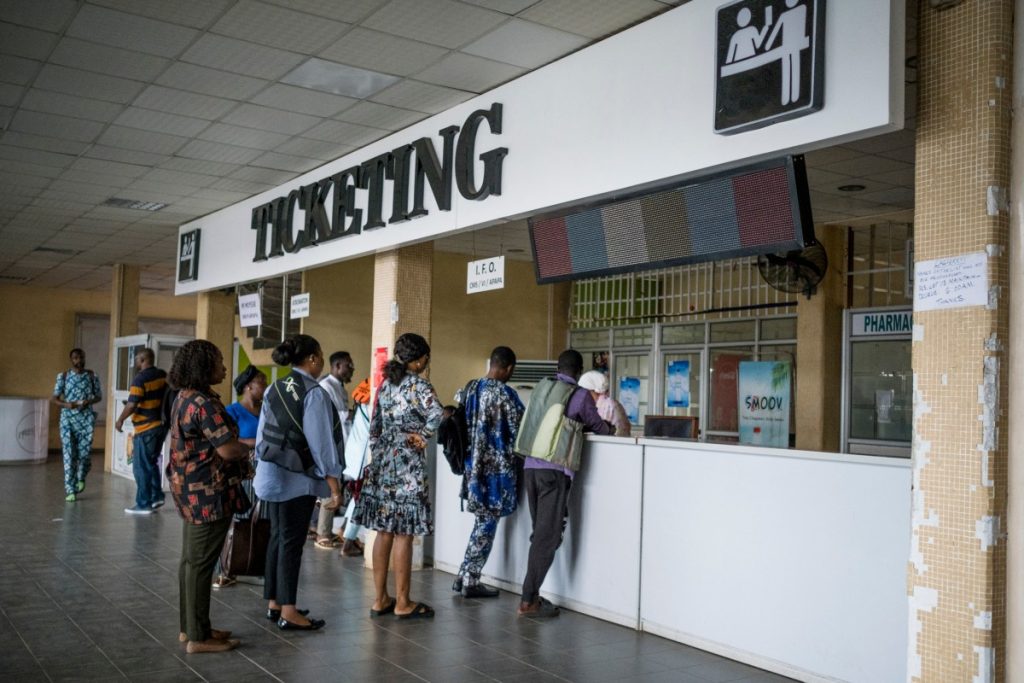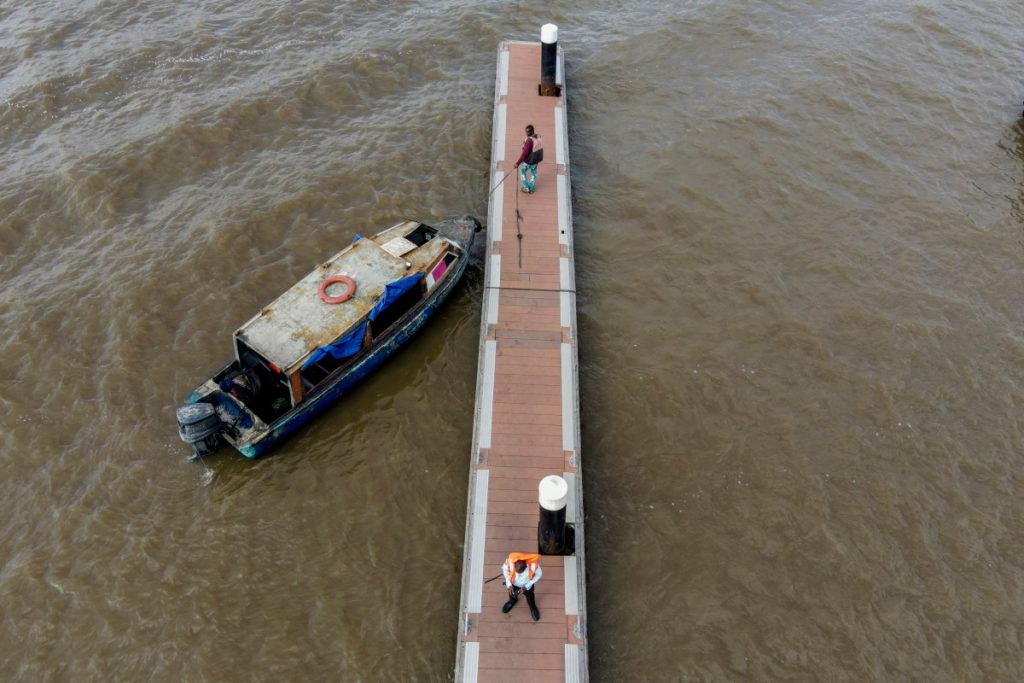Nigerian saleswoman Ivy Junaid says her daily 30-minute commute from mainland Lagos to the island business district has transformed her life.
What used to be a grueling three-hour drive, often starting at dawn and battling heavy traffic, is now a quick boat ride across the Lagos Lagoon. “You can wake up when you need to, have breakfast at home, and in 30 minutes you’re across the water,” said the telecoms employee. “It’s a life-saver for most of us.”
Nigeria’s economic capital, Lagos, has long relied on its waterways as an alternative to its congested roads. More commuters like Junaid may soon be traveling by boat, thanks to plans to expand waterway transport significantly and increase passenger volumes.

With an investment of around €410 million ($455 million) from France’s AFD development agency and EU institutions, the initiative—known as Omi Eko, or Lagos Water—also aims to reduce carbon emissions by introducing electric-powered ferries.
Most Lagosians live on the mainland, while many offices are on the islands—Victory Island, Ikoyi, Lagos Island, and Lekki—connected by bridges. This leads to severe morning traffic to the islands and back at night. Minor accidents or road repairs can result in major delays, compounded by poor roads and flooding during the rainy season, along with the chaotic informal “Danfo” minibuses.
The state government has ambitious plans for integrated public transport, as Lagos is projected to become the world’s most populous city by the end of the century. Intracity train lines and dedicated bus lanes, aided by smaller minibus routes, aim to alleviate traffic. After years of delays, the first Blue Line train began operations last year, with another Red Line set to open soon.
Given its extensive waterways, boat transport presents a clear solution. Oluwadamilola Emmanuel, General Manager of the Lagos State Waterways Authority, believes it could serve as a model for similar projects in Cameroon and Ivory Coast. “We see the waterways as a jewel to alleviate road congestion,” he said.
Transport costs present a significant challenge for Lagosians. Nigeria is facing its worst cost-of-living crisis in decades, with inflation exceeding 30 percent and fuel prices tripling in the past 18 months, impacting many in a nation where half the 200 million people live in poverty, and the minimum monthly wage is 70,000 naira ($46).

In response, people are adapting by driving less, using public transport, or working from home. For boat operators, it often means reducing to a single one-way trip a day. Transport expert Samuel Odewumi at Lagos State University emphasizes the need for sustainable development in the new system. “There are no downsides for Lagos state with water transport, but it’s been inconsistent over the years,” he noted.
Challenges such as dredging, fuel prices, and boat safety need to be addressed, he said. For the French AFD, already involved in Lagos’s bus systems, inland waterways offer a viable solution to the saturated road network and a way to connect different city regions.
Over the next three years, the project aims to establish 15 ferry routes with over 75 electric vessels, in addition to upgrading the jetty system and dredging existing routes. To address power issues in the city, solar infrastructure and compressed natural gas generators will recharge the vessels at jetties. “Other countries are closely studying our project,” said David Margonsztern, chief of AFD’s transport projects.
Emmanuel hopes to increase boat ridership from about 2 percent of total commuters to 10 percent. “We aim to transport around 10 million people monthly,” he said.
However, cost and fear of water remain significant concerns. First-time boat rider Adeyemi Jagbojagbo experienced relief arriving at the ferry terminal, but expressed hesitation about riding again: “I’m scared; the boat was moving a lot. I just hope to try again.”


